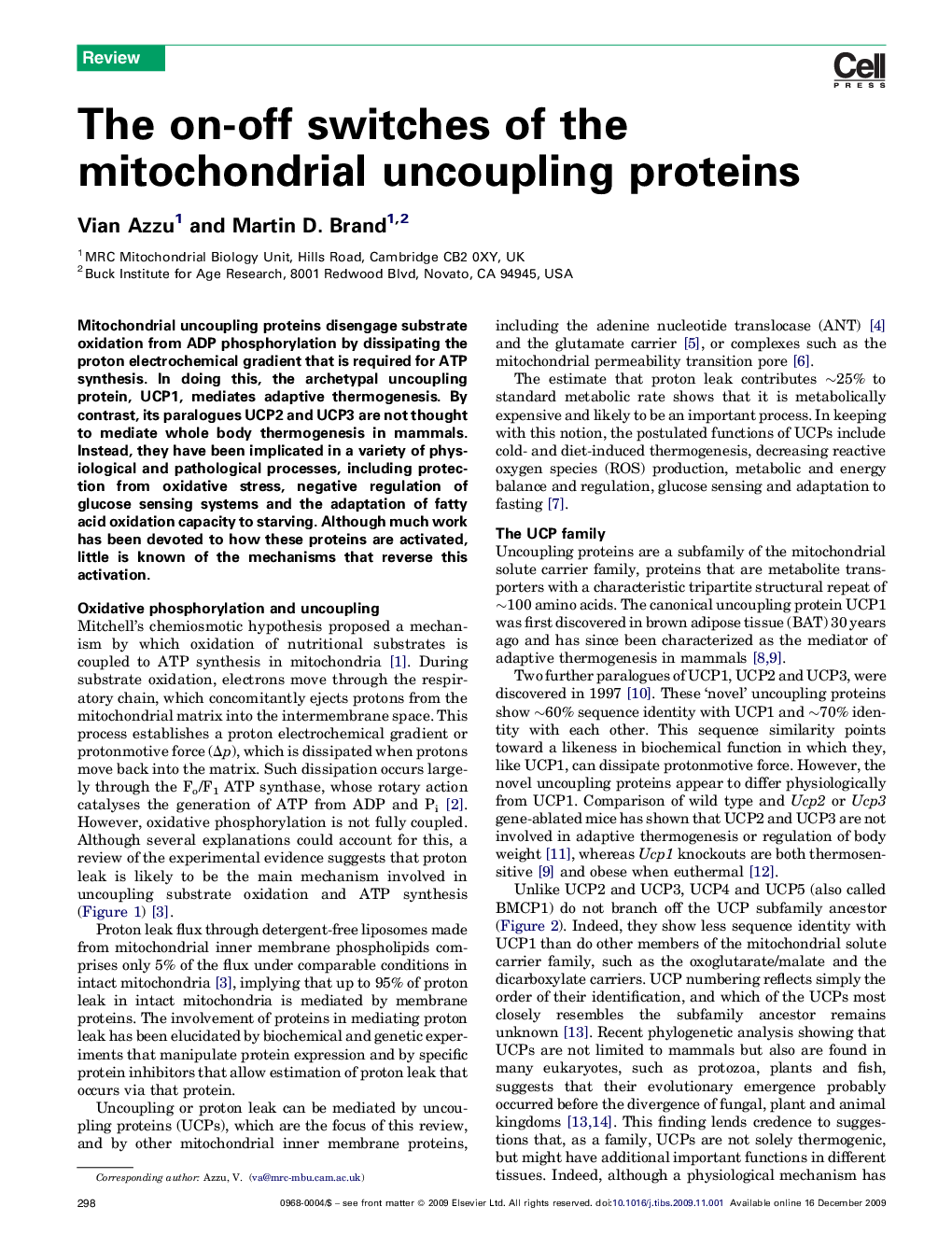| Article ID | Journal | Published Year | Pages | File Type |
|---|---|---|---|---|
| 2031010 | Trends in Biochemical Sciences | 2010 | 10 Pages |
Mitochondrial uncoupling proteins disengage substrate oxidation from ADP phosphorylation by dissipating the proton electrochemical gradient that is required for ATP synthesis. In doing this, the archetypal uncoupling protein, UCP1, mediates adaptive thermogenesis. By contrast, its paralogues UCP2 and UCP3 are not thought to mediate whole body thermogenesis in mammals. Instead, they have been implicated in a variety of physiological and pathological processes, including protection from oxidative stress, negative regulation of glucose sensing systems and the adaptation of fatty acid oxidation capacity to starving. Although much work has been devoted to how these proteins are activated, little is known of the mechanisms that reverse this activation.
